What is a pure juice?
The term pure juice is used for fruit juices in which only the original, fruit-own components of the processed fruits are found. The juice thus always reflects the natural taste accents of the fruits used, which may be subject to slight variations depending on the growing conditions. A complete standardisation of taste and aroma is therefore not possible with pure juices.
The production of a pure juice can be explained as follows:
- fresh fruits are sorted, crushed and pressed after harvesting.
- they are then centrifuged and filtered if necessary.
- the juice is then preserved by pasteurisation.
- in the last step, the pure juice is bottled.
What is a concentrate?

Fruit juice from concentrate, on the other hand, is called a product in which concentrated fruit juice has been produced by mixing it with drinking water. In the production of juice concentrate, water and flavourings are first removed from the pressed juice before they are added again in the later production process (see steps below). By assembling the final product from individual components, modern food technology can be used to produce a juice that always tastes the same, regardless of the individual fruit flavour.
The production of a fruit juice from fruit juice concentrate can be explained as follows:
- fresh fruits are sorted, crushed and pressed after harvesting.
- centrifugation is then used to separate the pulp from the juice in some types of fruit, such as oranges.
- during filtration, suspended matter is removed from the juice.
- then the process of concentration begins. During this process, the flavourings are isolated from the juice and the fruit's own water is removed. This results in a thick concentrate.
- the concentrate, as well as the flavourings and the pulp, can now be transported all over the world in a space-saving way.
- reconstitution begins at the production site. In this process, drinking water, the fruit's own aromas and, if necessary, fruit pulp are added to the concentrate again.
- the juice from fruit juice concentrate is pasteurised and bottled.
The differences in the production of pure juice and concentrate can also be seen in the following illustration:
Pure juice or concentrate - these are the advantages and disadvantages
The advantage of pure juice lies in its natural, fresh and fruit-own components. Since the juice is produced without concentration and de-flavouring, the full fruit aroma is preserved as well as the natural ingredients. However, the juices from different batches may have slightly different flavours. This is due to the aroma development of the fruits used, which means that a complete standardisation of the taste is not possible.
With fruit juice from concentrate, the ingredients usually arrive at their destination via long transport routes. The advantage is that the concentrate has less volume and can therefore be transported more cost-effectively than when fruit or pure juice has to get from one place to another. In addition, the concentrate has a very long shelf life and can be processed at the production site into a juice that has a consistent composition. This results in a juice that has no major fluctuations in taste and only slight nuances in taste in the different batches.
Why we at Rabenhorst rely exclusively on pure juices
In the production of our Rabenhorst juices, it is very important to us to work without juice concentrate. Instead, we preserve the natural structure of our purely pressed juice to offer you the pure fruit taste. Because we value the diversity of nature.
In addition to pure juices, you will also find fruit nectars in our Rabenhorst range. Find out why we process certain pure juices into nectar in our article on "The difference between juice and nectar". In the article "What is the difference between fruit juice, fruit nectar and fruit juice drinks?" you can also find out more background information about the fruit juice content and legal requirements on which the various drinks are based.
FAQ
Is sugar added to pure juice?
No. Our Rabenhorst pure juices do not contain any added sugar. The addition of sugar is not permitted under the EU regulation for the production of pure juice or fruit juice from fruit juice concentrate.
What is the difference between the production of pure juice and juice from concentrate?
The main difference between pure juice and concentrate is the removal of water, fruit pulp and flavours, which are added again in a later production step after transport. In the production of pure juice, on the other hand, the fruit's own water, as well as the natural ingredients and flavours, remain continuously connected with the juice.

